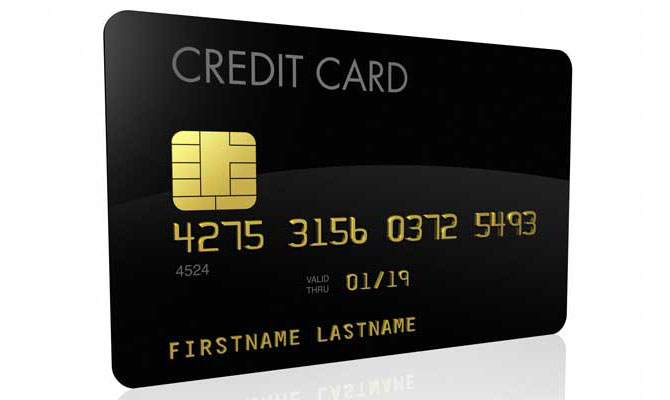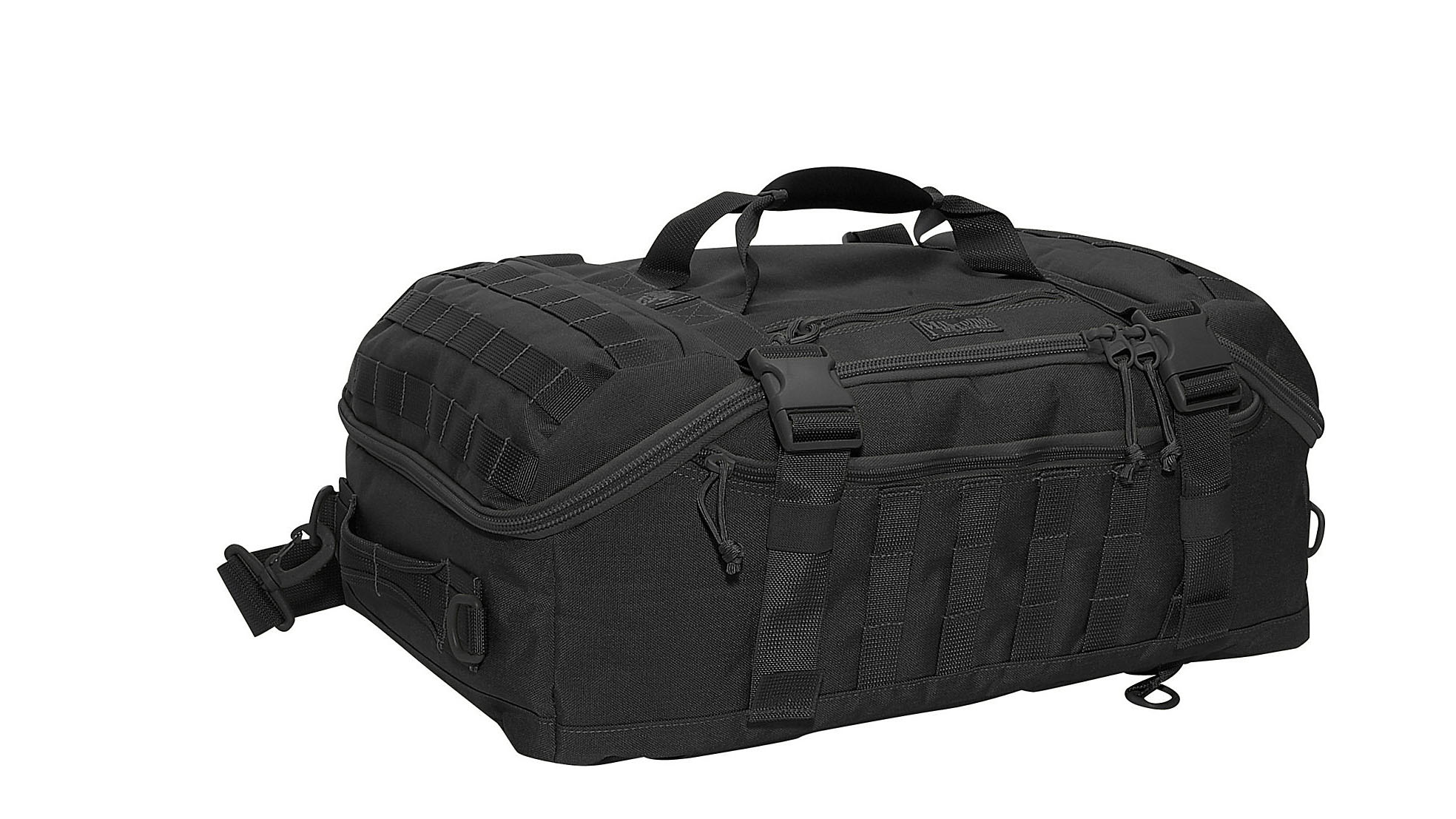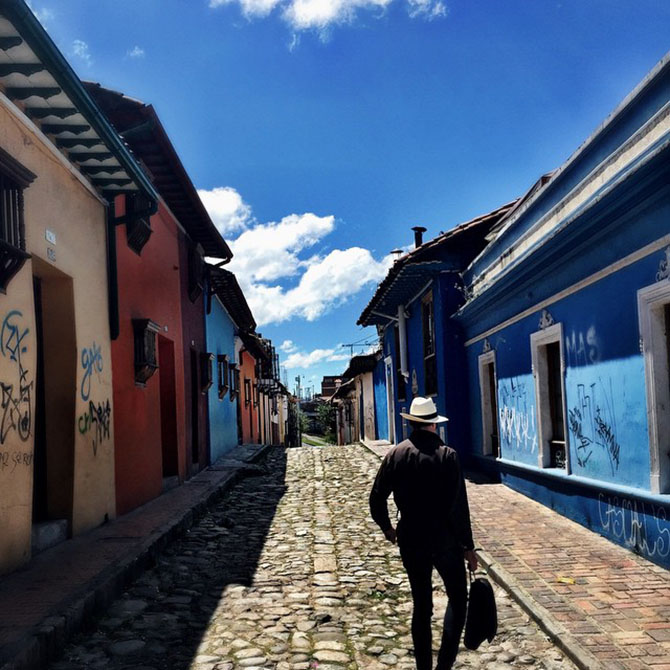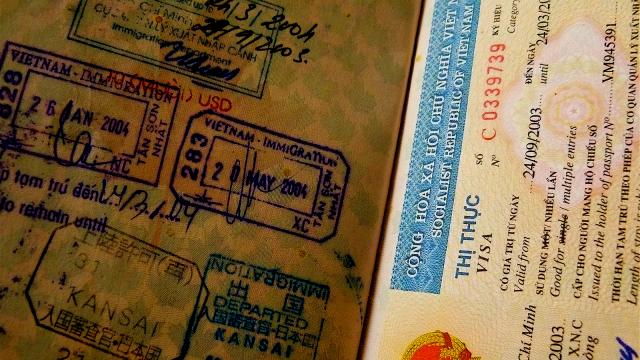Did you know that only about 30 per cent of Australians travel abroad each year? Beat the odds, get a passport and go see the world. It’s easier than you might think. Here’s our starter guide for the new traveller.
I’m an American, but I grew up in England, my family now lives in rural France and I was conceived in Luxembourg. TMI! I haven’t kept track of all the countries I’ve been to, but I think I’ve probably hit every one in Europe and I’ve been to every continent but Australia and Antarctica now. Maybe we can fix that this year. I’m also a young guy who doesn’t have a lot of money and sucks at languages, two traditional shortcuts to making all this much easier. And I don’t really like being a tourist, so I tend to seek out adventures that are, well, actually adventurous rather than just getting all excited that McDonald’s serves (shitty) beer here.
First Steps
You’re going to need a passport. These aren’t hard or expensive to get, just don’t wait until the last minute; doing so makes one hard and expensive to get. A new Australian passport will set you back the grand total of $250. To get one, you’ll need to answer some questions and fill out a form. You’ll need to show your birth certificate or proof of citizenship, and a photo ID like a driver’s licence. Make copies of both and take both the copies and originals with you. You’ll also need to get a standard passport photo taken ahead of time.
That’s it; three weeks later you’ll be able to travel the world. Passports are good for 10 years.
Pro tip: get a few extra copies of your passport photo and staple them inside the back cover of your passport. Occasionally, a random country might ask you for one at the border and you might need them for visas. Basically, you’re doing this once rather than every time you need one.
Do You Need A Visa?
This is where shit gets complicated and weird. Most countries a new traveller might visit won’t require a visa. The countries that do tend to make the process as much like a Monty Python sketch as possible. Each has its own bizarre and frustrating process, but in general, if you’re doing this far enough in advance, it will just be a case of collecting documents, sending them in and paying a fee. Make sure you read the instructions on any form through several times, that you understand them clearly and follow them precisely.
Rushed visas are a whole ‘nother story. Google is your friend and, if the consulate in question uses a third party processor, Yelp reviews are too. Just try to get an idea of what the process is like before you make an appointment or mail your passport to someone with diplomatic immunity.
Oh yeah, and because you frequently have to mail your passport in, that’s just another reason to do this well in advance, so you don’t have another trip compete for your passport’s time. But that’s starting to sound like a Wes problem and we’re trying to keep this simple.
Choosing A Destination
You probably already have one in mind: some place you saw in a movie once or where your ancestors are from. Hint: they left there for a reason and that reason is likely terrible weather. Or Germans.
The world’s a pretty big place and everyone has different desires, tastes and fantasies. So, I can’t tell you where to go for your first big trip abroad, but I can help you narrow it down.
Choose somewhere that you won’t need to rent or drive a car. Doing so is frequently insanely expensive at best and dangerous or scary at worst. Driving your Canyonero to Costco on the Interstate has not prepared you for driving in a foreign country where a) driving standards tend to either much higher or completely non-existent. And, in many countries, most people don’t drive at all, so there’s really no need. Public transportation, taxis, tuk tuks, private busses, ride sharing, aeroplanes (yes, really!) or just fucking walking are not only better ways to see and interact with a new culture, but superior forms of transportation in general.
Visit a city. Even if you want to do outdoors stuff, basing yourself in a city or spending a few days in one is the best way to immerse yourself in foreign food, foreign language, foreign manners and foreign women. Cities in Asia are dirty and loud and crowded. Cities in Europe are pretty and historical and, well, quiet. Cities in South America are vibrant and chaotic and intense. Africa’s too freakin’ huge and varied to make such a generalization.
Avoid places where the English holiday. I can say this with some authority, Brits abroad are the absolute worst. Basically, just look up the destination cities for Ryanair and avoid those like the plague. Particularly if those cities include a beach. No one wants to see a fat, drunk, pasty english guy with the world’s worst sunburn get into a sad fight over football or Agincourt.
Pick a place with goodt food. If the local cuisine is all chilled monkey brains and pregnant snakes, you’ll have just as bad a time as you will somewhere that it’s spam, peas and boiled potatoes. What do you order for meal deliveries at home? Go there, or, better yet, a country that that country colonized and which now has a hybrid of old and new world eating. Don’t visit a city next to the ocean if you don’t like fish. Or, better yet, learn to like fish when you visit.
Learn about local tourist seasons and don’t visit during them. Prices will be higher, the city will be packed with annoying people and it will be hard to find and do the fun stuff.
So basically, do go to South America. Don’t go to a resort.
Our AirBnB in Colombia was pretty solid.
Where To Stay
Are you a dirt bag? Use couchsurfing.org or stay in hostels. Hostels are great places to meet hot Australian chicks or cool people who can invite you along to do fun things. Preferably both in one package.
Do you have a credit card? AirBnB.
Hotels are for suckers. Or people travelling on business.
In a lot of places, you can camp pretty easily. That may be in either an organised campsite (see: hostel) or just wild camping, where you just have to be a set distance from a road or some such similarly vague regulation. If you do camp, you need to take everything with you when you leave or not leave camp, which I’ve always found restrictive. Be prepared for rain, especially in Europe.

How To Figure Out Money
Your life will be a lot easier if you have a credit card that a) doesn’t charge you an outrageous fee for using it abroad and b) has a chip in it (above). Most card issuers will send you a card with a chip if you ask them.
What the hell am I talking about? Well, in the rest of the world everyone thinks it’s insane to give your card to some random waiter at a restaurant to take out of your view and do whatever he wants with. So, they use little portable card readers that they bring to your table and work by reading a computer chip embedded in one end of the card. It’s a more secure means of using a card and it’s also implemented at autonomous payment processors like gas stations. Driving through France late at night or on a Sunday? Not without a chip card you’re not, no one’s manning them and the machines don’t read magnetic strips.
Using a credit card gives you security against fraudulent transactions and theft and means you don’t need to carry a bunch of local currency on you. But you should still carry some. Just like here, some businesses won’t accept cards. Often those are fun businesses. I try and carry $100 or so in most places. That’s enough to cover a bill that I didn’t realise was going to be cash only, pay for a taxi or whatever without being so much that I’ll ruin my trip if I lose it or accidentally buy something too expensive.
Exchange rates can be a bit bewildering, especially in countries where you get, say, 66,000 pesos to the dollar or some such insanity. Rather than try and calculate the exact price of everything you buy, just figure out an easy exchange rate ahead of time. If you know 60 Krona is roughly equal to $10, you can have a loose point of reference for prices and at least some assurance that no, that bagel isn’t going to cost you more than a nice Porsche.
Get an idea of the cost of life in the city you’ll visit before you go and chose your destination according to your budget rather than trying to worry about every last Lira when you’re there.
And yeah, people are going to try to rip you off because you’re a tourist. Walk away from any price that sounds ridiculous; doing so frequently results in a much lower offer. Counter with half that, then meet in the middle. You’ll still be paying more than a local, but it will be so cheap that who cares?
No one carries traveller’s cheques anymore.
What To Do With Your Phone
When you get on the aeroplane, do yourself an enormous favour and switch off mobile data. Roaming rates are ridiculous — AT&T tried to charge me $500 for uploading a photo to Instagram from Canada — and WiFi is almost universal in many countries. You don’t need to check your emails that badly anyways.
But, you do want your phone to work for voice and text. The latter being the most economical and seamless way to communicate with people at home, where you’re visiting or in your group and the former being essential for when your bank freaks out and turns your card off when you’re trying to pay for lunch.
You can use a local pay-as-you-go phone or SIM card if your usage is going to be really high; I’ve never bothered.
The Language Barrier
Pretty much any other country with any education system to speak of will teach its kids to speak English from the age of 5. But, do yourself a favour and at least learn how to say, “Do you speak English?” In their language.
It’s going to net you many more brownie points and make your life a lot easier if you make an effort to learn some basics of their language. Just assuming that someone speaks english and asking them a question in it is rude. At least make some attempt to communicate in a butchered version of their language, they will be a lot friendlier if you do and often smile and start speaking to you in fluent english.
Obviously the better you speak it, the easier a time you’ll have. But just trying is half the battle. Be apologetic and humble and appreciative that someone is taking the time to help your dumb arse.
Don’t carry or pull out one of those phrase books; sort your own life out if you don’t know how to ask for it. But do study that phrase book before you trip so you know how to ask for things.
If you already speak a language, then that should make choosing where to go that much easier.
What If You Get Hurt Or Something Else Goes Wrong?
Here’s a fun concept to get your head around: In the rest of the world, healthcare is considered an inalienable human right. You’ll obviously have a better time at a hospital in France than you will in some armpit country, but pretty much anywhere you go, they will fix what’s wrong with you, give you the medicine you need and treat you like a human.
If you know me, then you know that I’m about as accident prone as it gets. Blame a combination of clumsiness with a preponderance for danger. So, I’ve been to many hospitals in many countries. I have never had a worse experience than I’ve had right here in America. And I’m not just talking cost, I’m talking outright quality of care. They will do a better job of fixing your broken body in Timbuktu than they will in Texarkana. And, if for some reason that care is not free, the cost will be affordable.
I’m sure cancer treatment or similar is better here, but fixing a broken bone is basically rudimentary carpentry and involves the same tools. I complimented my last surgeon on his choice of power drill, he had the sam Dewalt I do. You could do it yourself if you weren’t high on Nifgurgul.
Oh, and I should probably tell you that medicine is way more powerful outside our borders. You can get over the counter stuff that’s as strong as our prescriptions and man, the prescription stuff is just killer. Try not to get addicted to it.
Will you get mugged? Probably not. Will you get raped, murdered or held hostage? Even slimmer a chance of that happening. But why take chances? Don’t advertise your presence and don’t be a dick. Don’t take anything with you that you can’t afford to lose, then walk away from it if you lose it. Problems are only problems if you let them be problems. Maybe don’t tour Syria if it’s your first time leaving Sacramento.
I’ve never used travel insurance. If you have and you have an opinion on it, tell us about it.

This Maxpedition Fliegerduffel is my all time favourite bag for travelling. It fits into even the tiny overhead bins on regional planes, converts between shoulder carry and a comfortable backpack, can fit everything I need to ride a dirt bike in safety (aside from the helmet, which I carry as my personal item), as well as my street clothes and laptop and is built strong enough that you can easily strap it to the back of a motorcycle.
What Should You Pack?
For Iceland, I carried only a small shoulder bag. I once visited Siberia to ride motorcycles in the winter with only a backpack. Unless you’re taking specific equipment for a sport, then you should be going carry on only. Not only does that reduce the fairly high odds that the airline will jettison your bag somewhere over an ocean, but it also gives you the ability to move freely during your travel, to be mobile the second you stop off your plane.
It’s for that same reason that I prefer a shoulder bag or backpack to a wheelie bag; they just afford you that much more mobility. Think of all the steps and vehicles and escalators and crowds in which you won’t even think about your backpack, then imagine trying to drag a wheelie bag through all that.
Here’s a complete list of your absolute needs, with nothing left out: a toothbrush, toothpaste, your passport, your phone and your credit card. Anything else you might want can be acquired where you’re going.
Make your life easy and pack clean underwear for every day that you’ll be gone, under a week. If you’re gone longer, just clean your undies in a sink with whatever soap you’ve got and hang them up to dry.
Take two pairs of wool socks of an appropriate weight for the weather. Wool doesn’t gather stink.
Wear jeans or other, appropriate pants for where you’re going and what you’re doing. Wear a decent looking, comfortable button down and pack another one in a different colour.
Wear a light, versatile, waterproof jacket. I most frequently wear my old Barbour International, it looks good with a pair of jeans and a t-shirt or over a shirt and tie and works just as well on the plane as it does in a restaurant or in a torrential downpour.
Take another set of base and/or mid layers appropriate for the weather and wear shoes or boots that look nice, but are comfortable to walk in and can deal with whatever it is you’ll be facing.
There you go, I just filled half your small bag.

Bogota.
How To Fit In, Make Friends And Have A Good Time
First, consider your appearance. Americans have a habit of dressing like slobs. Quality, comfortable, versatile clothes that fit you will work in virtually any situation anywhere in the world. White sneakers, white tube socks, denim shorts two sizes too big, a hot pink polo shirt tucked in and a horrible pair of eXtreme Brand sunglasses will make you look like just as much of an arsehole abroad as they do at home. Just you’ll be the only person dressed like that once you leave our borders.
Channel J Peterman or Michael Douglas. If you’re going to a hot country, wear a light button down and loose trousers, not an old, stained Corona t-shirt and board shorts. If you’re going somewhere cold, wear jeans and a nice sweater, not a giant yellow ski parka.
And, now that people won’t avoid you like the plague, be humble and curious when you talk to them. Ask them about their lives and listen to their responses. Don’t make assumptions, don’t compare their country to yours (everyone’s heard all that already) and don’t spout off about your politics. Listen and learn. And turn your volume down by about half.
Don’t judge other countries by your standards. Yeah, it’s kinda gross that they squat over a hole to do their pooping, but no one’s going to find your arse a porcelain throne, so you’re going to have to as well. Don’t turn your nose up at stuff, just look, listen, observe and try to adapt to the local approach and pace. Try to fit in and you might just be able to do so.
The Real Secret To A Successful Trip
Research. Read the Lonely Planet guide for your destination city, pick up some locally written literature to get a feel for the culture, watch the relevant Anthony Bourdain episode, look stuff up on Trip Advisor, read forums and ask friends who have been there before.
Doing all that will give you a feel for the place, will manage your expectations and help you get the most out of your time there. Often, it will be specialty forums that will help you find information on hiking trails or around a given sport.
Make sure you consider the date of anything you read; a travel guide written 10 years ago won’t likely give you a good feel for current conditions or activities.
Try and figure out exactly how you’re going to get from the airport to your destination ahead of time. You’ll be showing up tired and a bit overwhelmed by the new sights and sounds and currency and language. It’s way easier to adapt to all that once you’ve had a chance to decompress from the flight a little bit.
Then, with your research serving as a solid base of knowledge, just play things by ear. Go with the flow of the new country, don’t get stressed out by trying to follow exact plans and just relax and experience this new culture on its own terms. You’ll have a great time if you do that, promise.
Picture: Peter Grevstad/Flickr
